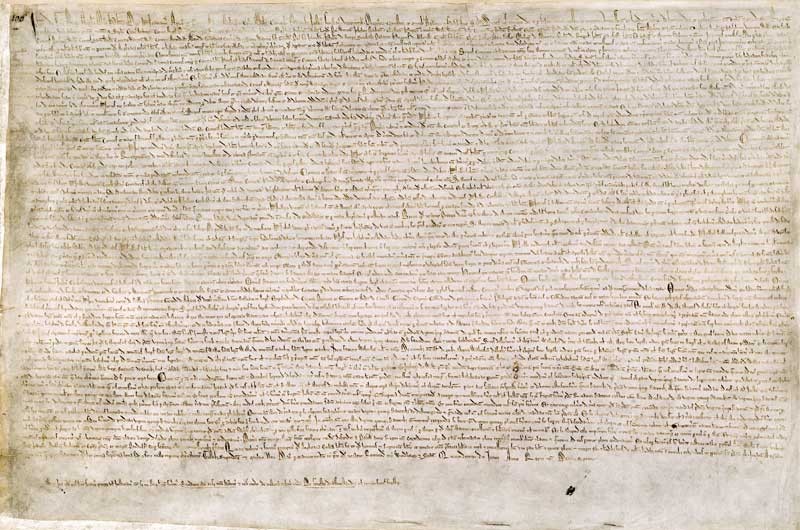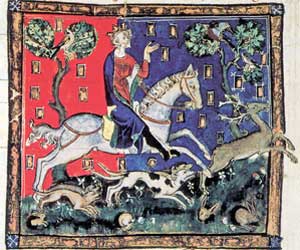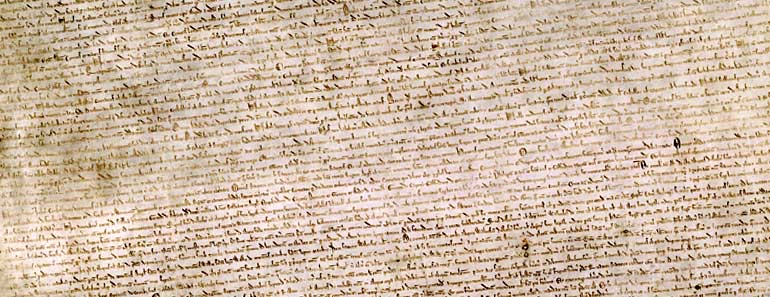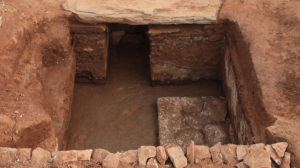A 1300 edition of the Magna Carta, thought to be worth £10 million, has been found in the archives of Maidstone, Kent.
Only 24 copies of the Magna Carta are known to exists, but now experts hope there maybe more copies that lay hidden and forgotten.

The Magna Carta (originally known as the Charter of Liberties) of 1215, written in iron gall ink on parchment in medieval Latin, using standard abbreviations of the period, authenticated with the Great Seal of King John. The original wax seal was lost over the centuries. This document is held at the British Library and is identified as “British Library Cotton MS Augustus II.106”
An edition of the Magna Carta that could be worth up to £10 million has been found after it lay forgotten in a council’s archives.
The discovery of the version of the historical parchment that established the principle of the rule of law, in the files of the history department of Kent County Council, has been described as an important historical find by an expert.
The document was found in the archives kept in Maidstone, Kent, but belonging to the town of Sandwich.
Source: The Guardian and The Telegraph.
[youtube]https://www.youtube.com/watch?v=FfAq0Lp-AmA[/youtube]

The charter became part of English political life and was typically renewed by each monarch in turn, although as time went by and the fledgling English Parliament passed new laws, it lost some of its practical significance. At the end of the 16th century there was an upsurge in interest in Magna Carta. Lawyers and historians at the time believed that there was an ancient English constitution, going back to the days of the Anglo-Saxons, that protected individual English freedoms. They argued that the Norman invasion of 1066 had overthrown these rights, and that Magna Carta had been a popular attempt to restore them, making the charter an essential foundation for the contemporary powers of Parliament and legal principles such as habeas corpus. Although this historical account was badly flawed, jurists such as Sir Edward Coke used Magna Carta extensively in the early 17th century, arguing against the divine right of kings propounded by the Stuart monarchs. Both James I and his son Charles I attempted to suppress the discussion of Magna Carta, until the issue was curtailed by the English Civil War of the 1640s and the execution of Charles. (Wikipedia)













